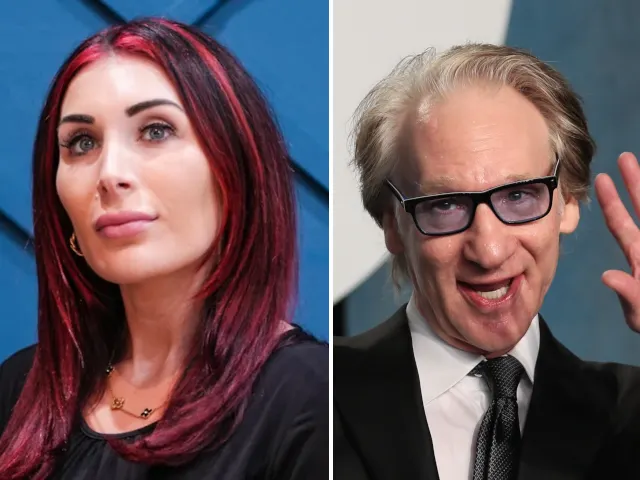Political activist Laura Loomer has filed a massive $150 million defamation lawsuit against HBO host Bill Maher, alleging the comedian made false statements suggesting she had an affair with former President Donald Trump. The lawsuit marks another high-profile legal battle in the ongoing tensions between mainstream media figures and conservative activists.
According to court documents, Loomer claims Maher made defamatory statements during his HBO show “Real Time with Bill Maher” that falsely implied she was having an inappropriate relationship with Trump. The lawsuit alleges these statements were made without evidence and were designed to damage Loomer’s reputation and career.
Loomer, a prominent conservative activist and investigative journalist, argues that Maher’s comments crossed the line from political commentary into personal defamation. The $150 million figure represents what Loomer’s legal team claims as damages to her professional reputation and future earning potential.
“Bill Maher’s reckless statements have caused significant harm to my client’s reputation and livelihood,” said Loomer’s attorney in a statement. “This lawsuit seeks to hold him accountable for spreading false and damaging allegations without any factual basis.”
Maher’s Pattern of Controversial Commentary
The lawsuit comes amid ongoing criticism of Maher’s increasingly provocative commentary about Trump and his associates. Maher, known for his politically charged humor and liberal viewpoints, has frequently targeted Trump supporters and conservative figures on his weekly HBO program.
Legal experts note that defamation cases involving public figures face high legal standards, requiring proof of “actual malice” – meaning the defendant either knew the statements were false or acted with reckless disregard for the truth.
Laura Loomer recently appeared on Alex Jones’ show to discuss the lawsuit in detail, providing her perspective on the legal action against Maher. The interview, which has gained significant attention in conservative media circles, allowed Loomer to present her case directly to supporters and explain her decision to pursue legal action.
During the Jones interview, Loomer detailed what she describes as a pattern of false statements from mainstream media figures targeting conservative activists. The appearance underscores the ongoing divide between traditional media outlets and alternative conservative platforms.
Defamation lawsuits involving media personalities face significant legal hurdles, particularly when the plaintiff is considered a public figure. Courts generally provide broad protection for commentary and opinion, distinguishing between statements of fact and protected speech.
Media law attorneys suggest that Loomer’s legal team will need to demonstrate that Maher’s statements were presented as factual claims rather than opinion or satirical commentary. The distinction between protected political speech and actionable defamation often determines the outcome of such cases.
“The First Amendment provides robust protection for political commentary,” explained media law expert Professor Jennifer Walsh. “Plaintiffs in defamation cases involving public figures must meet a very high standard of proof.”
The lawsuit highlights the increasingly contentious relationship between mainstream media figures and conservative activists. As political polarization intensifies, legal battles over speech and defamation have become more common.
The case also reflects broader tensions within the media landscape, where traditional outlets and alternative conservative platforms often present conflicting narratives about political figures and events.
Financial Stakes and HBO’s Response
The $150 million lawsuit represents one of the larger defamation claims filed against a cable television host in recent years. If successful, such a judgment could have significant implications for how media personalities approach commentary about political figures.
HBO and Maher’s representatives have not yet publicly responded to the lawsuit. The network typically provides legal support for its hosts when facing defamation claims related to their programming.
Moving Forward
As the lawsuit progresses through the court system, it will likely generate continued attention from both mainstream and conservative media outlets. The case could set important precedents for how courts balance free speech protections with defamation claims in the current political climate.
Legal proceedings in defamation cases typically take months or years to resolve, with many cases settling out of court before reaching trial. The high-profile nature of both parties involved suggests this lawsuit will remain in the public eye throughout the legal process.
The outcome could influence how media personalities approach commentary about political figures and activists, particularly regarding statements that could be construed as factual allegations rather than protected opinion.



